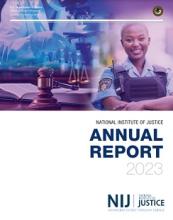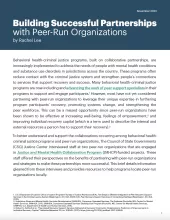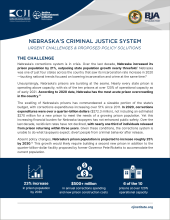Criminal justice systems
Examining the impact of organizational and individual characteristics on forensic scientists' job stress and satisfaction
Journal
Date Published
2017
Agencies
NIJ-Sponsored
Publication Type
Research (Applied/Empirical)
Federal Justice Statistics, 2022
Date Published
January 2024
Agencies
BJS
Publication Type
Publication,
Statistics
Discouraging the Demand That Fosters Sex Trafficking: Collaboration through Augmented Intelligence
Journal
Date Published
2023
Agencies
NIJ-Sponsored
Publication Type
Research (Applied/Empirical)
Examining the impact of organizational and individual characteristics on forensic scientists' job stress and satisfaction
NCJ Number
308359
Journal
Journal of Crime & Justice
Date Published
2017
Agencies
NIJ-Sponsored
Publication Link
Evaluation of an Australian Domestic Abuse Program for Offending Males
Date Published
2016
Publication Type
Program/Project Evaluation
Discouraging the Demand That Fosters Sex Trafficking: Collaboration through Augmented Intelligence
NCJ Number
308288
Journal
Societies
Date Published
2023
Agencies
NIJ-Sponsored
Publication Link
Evaluation of an Australian Domestic Abuse Program for Offending Males
NCJ Number
308266
Journal
Journal of Aggression Conflict and Peace Research
Date Published
2016
Publication Link
Building Successful Partnerships with Peer-Run Organizations
Date Published
November 2023
Agencies
BJA-Sponsored
Publication Type
Research (Applied/Empirical)
Nebraska's Criminal Justice System: Urgent Challenges & Proposed Policy Solutions
Date Published
February 2023
Agencies
BJA-Sponsored
Publication Type
Research (Applied/Empirical)
Cohort bias in predictive risk assessments of future criminal justice system involvement
Date Published
2023
Agencies
NIJ-Sponsored
Publication Type
Research (Applied/Empirical)











